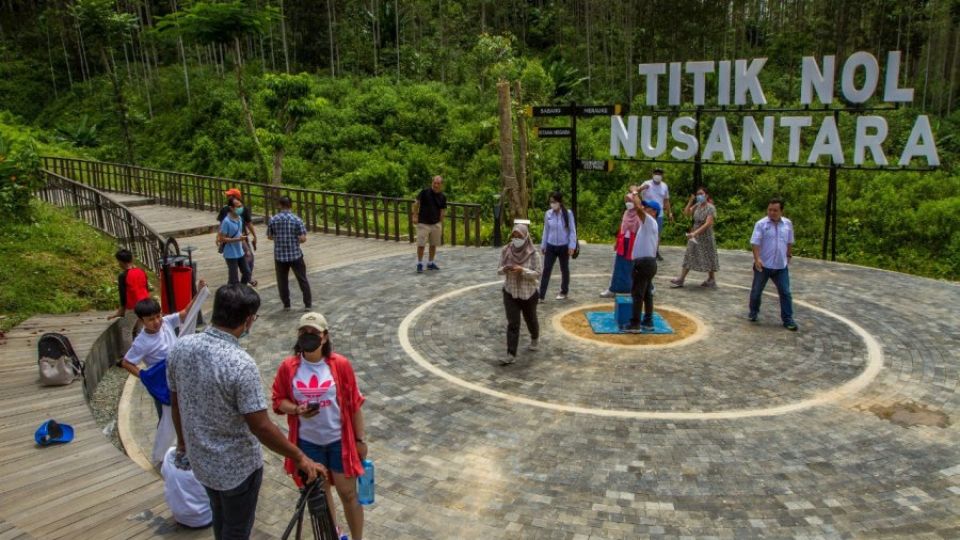March 8, 2023
JAKARTA – Foreign Minister Retno LP Marsudi on Monday reaffirmed Indonesia’s bilateral relations with Japan, with an emphasis on key trade and investment cooperation by reaffirming commitments to advance the amendment of protocols for the Indonesia-Japan Economic Partnership Agreement (IJEPA).
Meeting her counterpart Hayashi Yoshimasa in Tokyo, as well as a number of other Japanese public officials, Retno said in a Monday release that her meetings sought to expand and deepen strategic cooperation on, among other things, the environment, human resources, security as well as ASEAN-related matters.
“Japan is Indonesia’s third-largest trade partner,” said Retno on Monday. “This year’s Strategic Dialogue has a special relevance, as it coincides with the 65th anniversary of Indonesia-Japan bilateral relations as well as 50 years of ASEAN-Japan cooperation.”
“With Japan holding the Group of Seven (G7) presidency and Indonesia serving as the ASEAN chair this year, minister Hayashi expressed his intention to engage in very close communication so as to make this a highly fruitful year,” the Japanese Foreign Ministry said via a statement.
Data from the Indonesian Foreign Ministry said that in 2022, trade between Tokyo and Jakarta stood at US$42 billion, though Retno added that this amount was still “far behind the value of trade with other East Asian countries”.
As such, the amended IJEPA, projected to reduce tariffs and loosen restrictions on the movement of tourist workers, needed to be finalized sooner than later, Retno said.
Japan’s “flexibility” on the elimination of tariffs on canned tuna products, the advancement of skills for workers in the industry and tourism as well as the liberalization of trade conditions for coffee and sorbitol products, would help improve economic cooperation between the two countries, she added.
First agreed upon in 2007, the IJEPA’s three pillars have consisted of liberalization, trade and investment facilitation and cooperation. Yet at least since 2020, Jakarta had been attempting to renegotiate a few conditions of the agreements, as some of its fishery products were still prone to higher tariffs.
At the time, officials from the Trade Ministry said that Indonesia sought a zero-percent tariff on canned fish products as it would be a “win-win situation” whereby Jakarta could supply Tokyo with the sought-after commodity, whilst enjoying investments from Japanese businessmen interested in producing similar products for their market.
Another Indonesian agenda for the IJEPA was the expansion of tropical fruit exports to Japan, which Retno said has been “affirmed” during Monday’s visit.
Among the minister’s agenda were also meetings with Nippon Foundation chairman Yohei Sasakawa, Digital Transformation Minister Taro Kono and a line of Japan-based think tanks and academics.
Building cooperation
Trade aside, Retno said that multiple investment projects had been discussed, including the development of the new capital city Nusantara (IKN), “in which Japan could provide financial, human resources and technology transfer support”.
Projected to cost an estimated Rp 466 trillion ($32.6 billion), the government has in recent years pushed for more foreign investors including Japan to partake in the project. Just last week, Transportation Minister Budi Karya Sumadi met with Japanese officials to discuss the issue during an economic forum that was also attended by the Public Works and Housing Ministry.
“The public works ministry has started building various infrastructure in IKN as evidence of the government’s sincerity in developing the capital city,” head of the IKN infrastructure development task force Danis Hidayat Sumadilaga told Japanese officials last week.
Also following up on the Transportation Ministry’s visit, Retno said that she had discussed other infrastructure cooperation projects, including the fulfillment of capacity of the Patimban Port in West Java and bidding for a number of MRT projects.
“As with the Jakarta East-West MRT Project, the analysis on the basic engineering design for Phase 1 is currently being finalized with a target of completion at the end of 2023,” said Retno.
Security matters
Amid global challenges, the Japanese Foreign Ministry also added that robust discussions on the situation in Ukraine, the South China Sea, North Korea, the United Nations Security Council reform and nonproliferation were on the table.
The ministry said that both Jakarta and Tokyo “[shared] the view to coordinate closely on these challenges”.
Hayashi, according to the statement, also expressed his intentions to promote even greater cooperation toward the realization of a free and open Indo-Pacific and the ASEAN Outlook on the Indo-Pacific [AOIP].”
“Japan intends to provide its utmost support to Indonesia,” the statement said.


